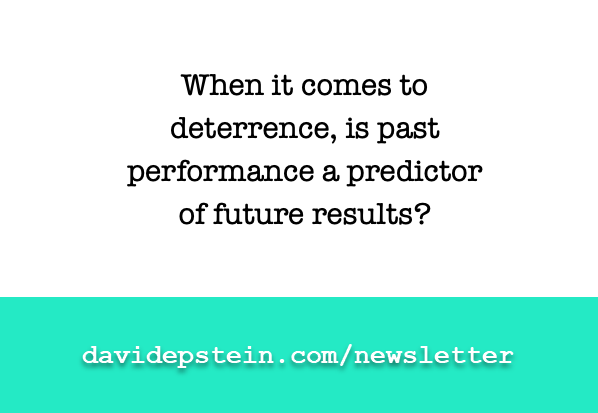
September 7, 2021
In Winter Notes on Summer Impressions, Dostoevsky famously suggested that the reader try not to think of a white bear. The reader, he added, will soon notice that “the cursed thing will come to mind every minute.” He underestimated.
In a 1987 study, psychologists found that people instructed not to think about a white bear not only thought of the bear more than once a minute, they thought of the bear more than subjects who had been told to think about a white bear. This is what psychologists call an “ironic process” — more effort gets precisely the wrong outcome.
The other day I was thinking about, well, a white bear, while reading The Practice of Groundedness, a brand new book (literally, out today) by Brad Stulberg. Early in the book, Brad reveals his own battle with unpleasant, intrusive thoughts, and his eventual diagnosis with obsessive-compulsive disorder (which he wrote about for Outside).
Given that he’s an executive coach, and had already co-written a popular book on mental performance, he was especially bemused to find himself struggling with mental health. “This is a nightmare; it’s not really happening,” he writes in his new book. “There must be a way I can will myself better.” And so, initially, Brad went with the white bear approach — trying harder not to think those intrusive thoughts. But trying to will it all away backfired. “The more I pushed against my experience of OCD, the stronger it became.”
Brad’s path back to a healthier mental state involved a therapist who helped him “surrender,” as he put it. He let go of his increasingly intense focus on how he felt his life and his mind should be, and accepted how they actually were. Negative inner chatter was Brad’s white bear, and the therapist helped him stop trying so hard not to think about it.
Reading Brad’s story reminded me of a shift of mind that I found helpful back when I was a college 800-meter runner. I was a walk-on, and when I started, the gap between where I was and where I wanted to be was so chasmic that I nearly quit. I had specific time goals I wanted to run, and every time I missed one (which was always, at first), I became more frantic about reaching it the next time.
Eventually, I learned that that only added counterproductive pressure, and having a strict time goal really didn’t help me. A specific time goal didn’t dictate my training — since that was dictated by what I was capable of at the moment — and it only served to make me unhappy after I crossed the line and didn’t reach it.
Part of the remedy, ultimately, was de-emphasizing the rigid long-term goal in favor of focusing on improving a little bit this week. Sometimes that meant starting an interval session a little faster than I had previously; other times it was getting ahead on homework so I could get more sleep the night after a hard workout.
By the end of college, I’d gotten a whole lot better. I was a member of the school record 4×800 team, and I actually ditched making specific time goals altogether. That would’ve been unthinkable to me a few years earlier, but instead I focused on the part of the path right in front of my nose — how to improve a little each week.
When I started both of my books, at first I fell into the same mindset trap of thinking too far ahead — “OMG, 100,000 words to go, why did I get myself into this?!?” Now I keep the phrase “cutting stone” on a little white board on my desk, a reminder just to take each single, barely perceptible axe-chop at the stone at a time, and eventually it will be ground to dust.

And on that note…
For the final time, a reminder: this newsletter is moving — tomorrow! Your subscription will be automatically transferred, although you will be presented with an opt-out option and can unsubscribe at any time. These posts, (which have been aperiodic), will become weekly. The Range Report isn’t currently where I want it to be, but I hope you’ll stick with me as I try to get just a little bit better each week;)
Thanks for reading. Coming up: the introductory post for the revamped newsletter…
David


